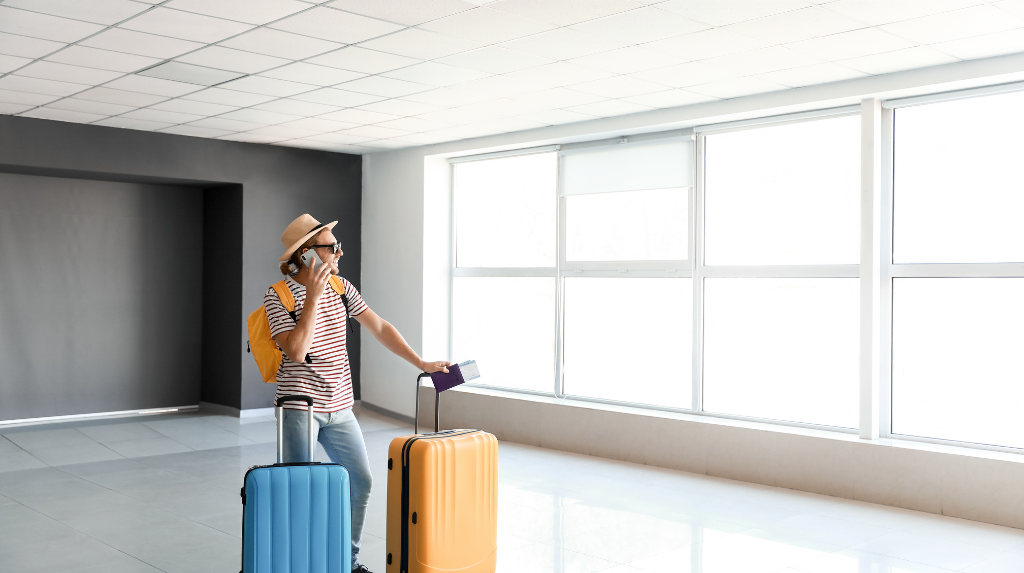If you’re planning to bring a foreign family member or friend to visit you in the US, you may be wondering whether you can get a B-1/B-2 travel visa for them. Answer: the answer is clear: you can’t sponsor the visa for someone else. The B-1/B-2 visa application is personal, and the visa applicant needs to visit the interview center personally.
But if you’re a U.S. citizen or green card holder, you can still have a significant role in assisting your family member or friend get their visa. They can’t fill out the application and go to the interview for you, but you can help them out in other ways. Let’s get into the specifics of how you can help them apply for a B-1/B-2 visa.
What to Do To Help Someone Apply For a B-1/B-2 Visa?
You won’t be able to fill out the visa application on their behalf, but here are a few tips you can offer your family member or friend:
1. Provide Important Information
Then you can inform your beloved about the process of applying for a visa. For example:
- What are the necessary documents for visa application?
- What to expect in a visa interview?
- What will the visa officer ask you for during the interview?
You can also direct them to the U.S. embassy or consulate’s website for more detailed visa details.
2. Offer Financial Support
Getting approved for a visa is important as you need to show that the applicant can afford their trip to the United States. You can volunteer to support your relative or friend. This could include paying for their travel, hotels, etc. The financial support document proves to the visa officer that the applicant will not be a hardship in their time in the U.S.
3. Write an Invitation Letter
You can also send an invitation letter if you are having your family member or friend over to your house. This letter should include:
- One sentence on how you are related to the candidate.
- Your US address and telephone number
- The reason they came (vacation, reunion) and when/how long they will be staying.
- This letter will also support their application and make the visa officer clear why they are coming to the United States and what they are doing during their visit.
4. Help with Practice Interviews
The visa interview is often the most uncomfortable stage of the whole process. If your friend or family member doesn’t feel too confident, you can interview them. Playing out what kind of questions they will be asked in an interview will ensure that they’re prepared and not so nervous on interview day. Also, encourage them to consider honest and straightforward answers to the types of questions they will naturally have.
5. Provide Moral Support
The visa application process can be time-consuming and nerve-racking if the applicant has never experienced it before. You can be there emotionally and supportively. If they need a shoulder to cry on or just someone to keep them smiling, it will mean the world to you.
What You Can’t Do
While you can do a lot for your family member or friend, you can’t do all of the things. You cannot:
- Apply for a visa on their behalf.
- Participate in the visa interview for them. They should bring the applicant to the interview since the decision of issuing the visa and issuing the visa is their personal opinion.
The B-1/B-2 is determined by the U.S. embassy or consulate, and the applicant has to show that they have met all the criteria to enter the U.S. as a temporary visitor.
You don’t have to get someone else a B-1/B-2 travel visa, but you can assist your family member/friend through the process, by giving them useful information, paying the bills, preparing an invitation letter, practicing for the interview, and being moral support. You will come in handy when they’re working their way through the sometimes challenging visa application process.
How Law and Visas Can Help?
At Law and Visas, our team of expert immigration consultants is here to make your travel straightforward and successful. Whether you’re applying for an J-1 Visa or an F-1 Visa, we handle every step—from preparing your application to gathering the required documents.
Our Immigration Consultants and Lawyers ensure that your application meets the highest standards, with no details missed. We’ll also keep you informed throughout the process and coordinate with the immigration office or embassy on your behalf.
Law and Visas have a strong record of helping clients secure the visas/permits they need for International travel. You can call us today at +234 812 5505 986 to learn how we can help you.





